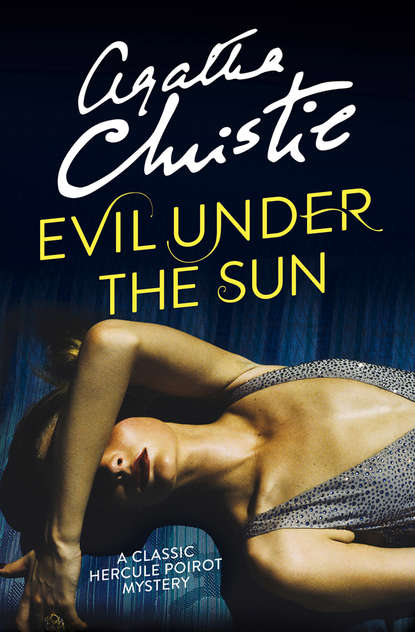По всем вопросам обращайтесь на: info@litportal.ru
(©) 2003-2025.
✖
Evil Under the Sun
Автор
Год написания книги
2019
Настройки чтения
Размер шрифта
Высота строк
Поля
‘Why not indeed,’ agreed Poirot. ‘I make you my felicitation on the fact.’
Smiling a little, Patrick Redfern said:
‘Thank you, sir.’
‘That is why, as an older man, a very much older man, I venture to offer you a piece of advice.’
‘Yes, sir?’
‘A very wise friend of mine in the Police Force said to me years ago: “Hercule, my friend, if you would know tranquillity, avoid women.” ’
Patrick Redfern said:
‘I’m afraid it’s a bit late for that, sir. I’m married, you know.’
‘I do know. Your wife is a very charming, a very accomplished woman. She is, I think, very fond of you.’
Patrick Redfern said sharply:
‘I’m very fond of her.’
‘Ah,’ said Hercule Poirot, ‘I am delighted to hear it.’
Patrick’s brow was suddenly like thunder.
‘Look here, M. Poirot, what are you getting at?’
‘Les Femmes.’ Poirot leaned back and closed his eyes. ‘I know something of them. They are capable of complicating life unbearably. And the English, they conduct their affairs indescribably. If it was necessary for you to come here, M. Redfern, why, in the name of heaven, did you bring your wife?’
Patrick Redfern said angrily:
‘I don’t know what you mean.’
Hercule Poirot said calmly:
‘You know perfectly. I am not so foolish as to argue with an infatuated man. I utter only the word of caution.’
‘You’ve been listening to these damned scandal-mongers. Mrs Gardener, the Brewster woman—nothing to do but to clack their tongues all day. Just because a woman’s good-looking—they’re down on her like a sack of coals.’
Hercule Poirot got up. He murmured:
‘Are you really as young as all that?’
Shaking his head, he left the bar. Patrick Redfern stared angrily after him.
V
Hercule Poirot paused in the hall on his way from the dining-room. The doors were open—a breath of soft night air came in.
The rain had stopped and the mist had dispersed. It was a fine night again.
Hercule Poirot found Mrs Redfern in her favourite seat on the cliff ledge. He stopped by her and said:
‘This seat is damp. You should not sit here. You will catch the chill.’
‘No, I shan’t. And what does it matter anyway.’
‘Tscha, tscha, you are not a child! You are an educated woman. You must look at things sensibly.’
She said coldly:
‘I can assure you I never take cold.’
Poirot said:
‘It has been a wet day. The wind blew, the rain came down, and the mist was everywhere so that one could not see through it. Eh bien, what is it like now? The mists have rolled away, the sky is clear and up above the stars shine. That is like life, Madame.’
Christine said in a low fierce voice:
‘Do you know what I am most sick of in this place?’
‘What, Madame?’
‘Pity.’
She brought the word out like the flick of a whip.
She went on:
‘Do you think I don’t know? That I can’t see? All the time people are saying: “Poor Mrs Redfern—that poor little woman.” And anyway I’m not little, I’m tall. They say little because they are sorry for me. And I can’t bear it!’
Cautiously, Hercule Poirot spread his handkerchief on the seat and sat down. He said thoughtfully:
‘There is something in that.’
‘That woman—’ said Christine and stopped.
Poirot said gravely:
‘Will you allow me to tell you something, Madame? Something that is as true as the stars above us? The Arlena Stuarts—or Arlena Marshalls—of this world—do not count.’
Christine Redfern said:
‘Nonsense.’
‘I assure you, it is true. Their Empire is of the moment and for the moment. To count—really and truly to count—a woman must have goodness or brains.’
Christine said scornfully:

















